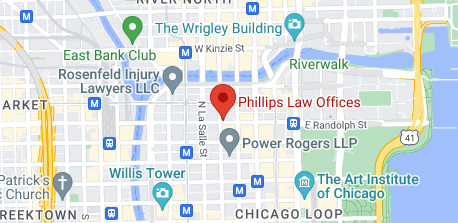The statute of limitations for nursing home abuse in Illinois is two years from the occurrence of the injury. This deadline is meant to protect both the victim and the nursing home. For victims, this two-year window provides plenty of time to determine whether their injuries warrant a lawsuit. Since more than two years have passed since any given case of abuse, it can be difficult to remember all the facts and details clearly enough to properly prove a case in court. Having an active two-year statute of limitations protects victims from delays in legal action due to lack of evidence or other issues that may arise after more than two years have passed.
For nursing homes, having such a law in place guards them against random, “out-of-the-blue” lawsuits several years after any alleged incident may have occurred. The statute provides them with an appropriate length of time for evidence gathering and investigation while still granting victims sufficient opportunities to bring forth legal action if needed – otherwise, cases could potentially drag on for many years without ever seeing resolution or restitution.
Contact a nursing home abuse lawyer at Phillips Law offices to understand your case better.
What Is a Nursing Home Negligence Statute of Limitations?
Nursing home negligence is an increasingly common issue that can have devastating consequences for victims and their families. In cases of nursing home abuse or neglect, state governments have set a statute of limitations limiting the amount of time someone has to take legal action against those responsible. This timeframe can vary drastically from state to state, ranging from as little as one year in Kentucky and Tennessee to as long as six years in some places like Maine or North Dakota. Most states have set their statute of limitations somewhere between two and three years, giving plaintiffs ample time to pursue civil lawsuits against those who inflicted harm on them.
Why Do Nursing Home Negligence Statutes of Limitations Exist?
Statutes of limitations for nursing home negligence exist to ensure that all legal action is taken in a timely manner, as well as to keep things fair for all parties involved. They act as a check on both plaintiffs and defendants, making sure that the claim is filed within enough time to establish the facts and collect needed evidence. This is especially important when it comes to cases involving elder abuse, as victims tend to be elderly adults with pre-existing mental or physical health conditions. When too much time has passed after an incident, crucial witnesses may pass away or have difficulty remembering the events clearly.
Statutes of Limitations by State
The statutes of limitations in personal injury claims vary from state to state. The list of statutes below outlines the general timeframe by which an individual must file a claim within each state. It is important to note that the time limits listed here do not apply specifically to nursing home abuse claims, but rather provide a broad understanding for those looking into their own legal case.

To ensure that your specific case meets all requirements for filing, it is important to consult with a lawyer experienced in nursing home abuse cases. Even if you have missed the window for filing outlined below, there are still options available to you and exceptions may be made in certain circumstances. With proper guidance from legal counsel, individuals can see if they qualify even if their case falls outside of the statute of limitations listed here. If you are interested in pursuing a claim related to nursing home abuse or neglect, call (312) 598-0917 today.
Nursing Home Abuse Lawyers & Statutes of Limitations
Nursing home abuse lawyers are essential when it comes to filing a lawsuit within the statute of limitations regarding nursing home neglect and abuse. Generally, nursing home victims have at least one year to take legal against the facility. It is important to be aware that the amount of time you have to act can vary depending on the state where the incident occurred. Experienced personal injury lawyers know these statutes inside and out and can help ensure your case is filed before the statute of limitations runs out.
Having an experienced nursing home lawyer from a top law firm on your side is invaluable when it comes to understanding statutes like those surrounding negligence in nursing homes. Without knowing all of the eligibility requirements, states’ laws, protocols, and other specifications imposed by law, it can be difficult for laypeople to determine if their claim falls within time limits, presenting a significant hurdle in receiving justice. Nursing home abuse attorneys provide invaluable guidance through this complicated process to make sure your rights remain protected and you receive timely justice.
Exceptions to Nursing Home Negligence Statute of Limitations
When filing a complaint for elderly care negligence, it is important to be aware of the statute of limitations associated with your state. In most cases, this means that legal action must be taken within a set time period or else the opportunity to make a claim will become void. While this timeline is typically set at 4 years in many states including Florida, there are exceptions that can extend the limit. If evidence or facts were concealed, then an extra 2 years may be added to allow sufficient time for the discovery of this pertinent information.
In other cases, the statute of limitations may be shorter if government-run assisted living facilities are involved. In such situations, the person filing a claim may only have 1 year from the date of incidence before it is too late to take legal action. Furthermore, exceptions to nursing home negligence statutes of limitation may also apply if conducted fraudulently or if misrepresentation is found from one side. It is therefore essential that issues concerning elderly abuse and negligence should be addressed promptly and cautiously as soon as possible for optimal protection under various laws.
Can I File a Lawsuit After the Statute of Limitations Has Passed?
Filing a nursing home abuse lawsuit can bring much-needed relief and compensation for the injured party, but the statute of limitations in your state may prevent you from filing a claim if too much time has passed. The statute of limitations is the legal period of time in which an injury lawsuit must be brought forth. This period varies by state, so it is important to know the laws in your jurisdiction. Typically, a statute of limitations falls anywhere between one to three years after the occurrence of injury or maltreatment.
File Your Lawsuit Within Nursing Home Negligence Statute of Limitations
If you or a loved one have been injured due to nursing home negligence, it is critical that you seek legal advice immediately in order to avoid missing out on your chance for redress. An experienced lawyer can provide expert guidance on understanding your rights under the law, and they can help you navigate filing a lawsuit before time runs out. It is important to note that statutes of limitations begin running upon discovery rather than when the injury occurred, so seeking prompt legal guidance is imperative for getting a successful outcome.
Also Reads:
What To Do After A Minor Car Accident
Champaign Motorcycle Accident Attorney






